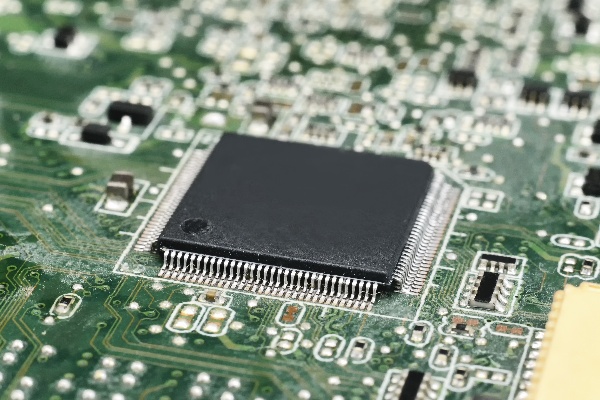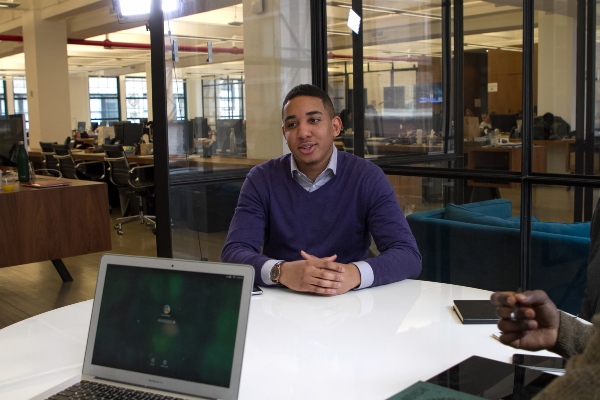Firmware Engineer Interview Questions and Answers
What you Need to Know


What you Need to Know
Firmware engineering is an industry sector that combines knowledge of hardware and software development, focusing on the development of systems that help things like embedded devices operate. It’s an exciting area of the industry to be working in at the moment, especially in embedded systems where we’re seeing a lot of innovation with the internet of things and the applications of embedded devices in new areas.
If you’re looking to get into firmware engineering, or are applying for a new role in this sector, you’ll need to complete interviews as part of the process. Job interviews can be daunting, especially when they involve a technical component like most engineering interviews, but being prepared for the kinds of questions you may be asked is one of the best ways to mitigate these nerves and improve your experience.
In this article, we quickly review the role of a firmware development engineer and then explain how to answer some of the most common firmware engineer interview questions.
Firmware engineers are a type of engineer that works predominantly with the firmware used to operate electronic devices. From developing the software needed to make the device functional, to installing and updating the firmware to ensure continued functionality, it’s a role that requires specific expertise with the entire firmware development process.
A firmware engineer will often be hired to deliver a specific project outcome or find a solution that a company needs, and can work across a range of different industries. The role is primarily based around software engineering, but also requires a good understanding of device development and requirements so that the resulting firmware is compatible.

The responsibilities of a firmware engineer will depend on the kind of projects they’re working on and the industry sector that they’re employed in. Some engineers might work in teams primarily designing and developing software for devices, whilst others may be in charge of updating or debugging devices.
Despite differences between specific roles, there are general tasks that the majority of firmware engineers complete as part of their job. This includes:

Interview questions for firmware engineers will likely range from technical questions and problems to more scenario-based situations where you’re asked to describe experiences from previous jobs or share how you’d handle a hypothetical situation. Below, we’ve included a range of types of firmware engineer interview questions to give an overview of what you might be asked when applying for a role.
This is a classic example of an interview question for a firmware engineer, gauging your understanding of what is required when designing firmware architecture. You should take the interviewer through your process of architecture design, explaining the reasons behind each of your choices and highlighting the benefits of this approach as well.
This firmware engineer interview question is an example of the kinds of technical questions you might be presented with to assess your experience and knowledge of firmware engineering. You should take the interviewer through your blank system debugging process and explain the reasoning behind each stage, and may also benefit from giving an example to illustrate your point.
Firmware engineers need to be confident testing and debugging the code that they’re developing, which is why experience with code-testing programs is preferred. You should talk through the programs you’re familiar with and the kinds of projects you’ve used them for, explaining how these have helped to streamline your testing process.
Testing code is a key part of a firmware engineer’s role, so you’re likely to be asked several questions about this stage of the development process. For this interview question, you should talk the interviewer through your testing process, referencing any tools or programs that you use, and explain the intention of each stage and what it ensures. This is another answer where being able to use an example of when you have put this approach into practice can be really useful.

A firmware engineer needs to be familiar with at least one compatible programming language in their role, so this question is used to determine whether you have the right skills and background to take on this key responsibility. The most common programming languages used in firmware development are C, Java and Python, so being able to demonstrate experience in one of these is ideal. If you can talk about a previous project where you used a specific programming language, and explain your choice, this can make your answer even better.
The majority of interviews for a firmware development engineer job will ask you to talk about previous projects that you have worked on. This is an opportunity for you to highlight some of the best work that you’ve done, explain the responsibilities you have taken on in previous roles, and highlight the kinds of projects you’re enthusiastic about or especially proud of
Interviewers for firmware engineer jobs are also often looking for candidates who demonstrate enthusiasm for their industry outside of work. As well as talking about projects from your previous or current roles, you can also talk about any relevant tasks you’ve been working on as a hobby, which helps the interviewer to get to know you better as a candidate.
Firmware engineers tend to work as part of a larger team, which means they may be given multiple tasks to work on at once or be responsible for meeting internal deadlines that allow other employees to continue with project development. Being organised and able to prioritise tasks is a really useful skill for firmware engineer jobs, so this is a question that it’s useful to be prepared for.
In your answer, explain your planning process to the interviewer and how you approach assigning priorities. If you can give examples with some hypothetical tasks, this can help the interviewer get a better idea of your methods.
Being asked to talk about challenging experiences at work is a classic interview question for embedded firmware engineers. Interviewers do this to learn more about how you approach problems at work, both from a practical point of view and to understand more about your personal approach to failure and overcoming this.
Talk about an example from a previous role where you were challenged by a piece of code and explain what made the task difficult. Then focus on what you did to overcome it and why this solved the problem, focusing on what you learned and ideally how you then applied this learning to future projects. This not only demonstrates resilience but also that you’re a candidate who uses challenges as an opportunity to progress.

This scenario-based question for a firmware engineer looks at how you would react to a problem at work, which in this case is creating a piece of firmware which has damaged a device. It’s important to be honest when answering this question, but also to think carefully about how to make the best impression with your answer.
Ideally, you’ll talk about how you’d alert necessary team members about the issue and what steps you would take to minimise damage. For this kind of question, you should also highlight what you’d do to avoid making the same mistake again in the future.
This is a classic interview question across a range of industries and is used by engineering interviewers to determine whether you’d be a good fit for a work environment that can be fast-paced and stressful at times. You should be honest about whether this is a working environment that you perform well in, but even if it isn’t, try and reframe the question to talk about the mechanisms you use to deal with stress and still get work done.
Being able to manage deadlines is applicable to all firmware engineers even if they’re not in a stressful situation, so you should prepare an answer to this that explains your process and why it works well for you.
This question may be asked in an interview for firmware engineer jobs as a way of gauging your general industry knowledge and your enthusiasm for the sector. It’s a good idea to be able to talk about the ways that you stay up-to-date and any particular trends that you are most interested in, which demonstrates a genuine interest in firmware engineering and a commitment to creating innovative systems or using new approaches in your role.
Job interviews are a necessary part of the firmware engineer hiring process, and if you’re the one doing the hiring it’s still important to prepare to meet and assess potential employees. Having a defined structure and set of questions for the interview not only makes the process fairer for all applicants, but also ensures that you don’t miss anything important when deciding whether someone is the right fit for your business.
Firmware engineers require a combination of software and hardware knowledge, so it’s important to make sure you’re targeting both of these areas with your questions. A lot of engineer interviews also include a practical task for candidates to complete, which can be very useful when assessing suitability for firmware engineer jobs.
Whilst technical questions are an important part of interviews, you should also include some scenario-based questions to help get an idea of whether a candidate is going to be a good culture fit. These might involve asking them how they’d react in certain workplace situations or delving deeper into what motivates or challenges them as an employee.

The role of firmware engineer requires a lot of technical knowledge of both software and hardware, so it’s a good idea to start your interview preparation early so that you have enough time to cover everything you might be asked about. Try and set yourself several questions every day and regularly review your answers to previous questions as well.
If you’re feeling nervous about an interview, or you don’t have much experience, practising mock interviews is an excellent strategy for improving your confidence and performance. Ask a friend or even a colleague to help you, or consider using an online service where you’ll get professional advice and feedback.
Remember that a job interview is as much an opportunity for you to ask questions as it is for the interviewer to assess your suitability for a firmware engineering role. Prepare a couple of questions beforehand that give you more information about the role, the company and the employment experience so that you get a good idea of whether you’ll be a good fit for the organisation.

Preparing for a firmware engineer interview is a necessary step in ensuring that you do well. For roles like this, you’re always going to be asked technical questions and likely asked to complete coding tasks as well, and failing to prepare for these will severely impact your chance of success.
If you’re a candidate applying for firmware engineering jobs or thinking about making a career change in this area, KO2 is a specialist recruitment agency that can help you find your ideal role in the embedded systems sector. Take a look at our current firmware engineer jobs, or get in touch to speak to the team about how we can help.

 Linux Developer Interview Questions and Answers
Linux Developer Interview Questions and Answers